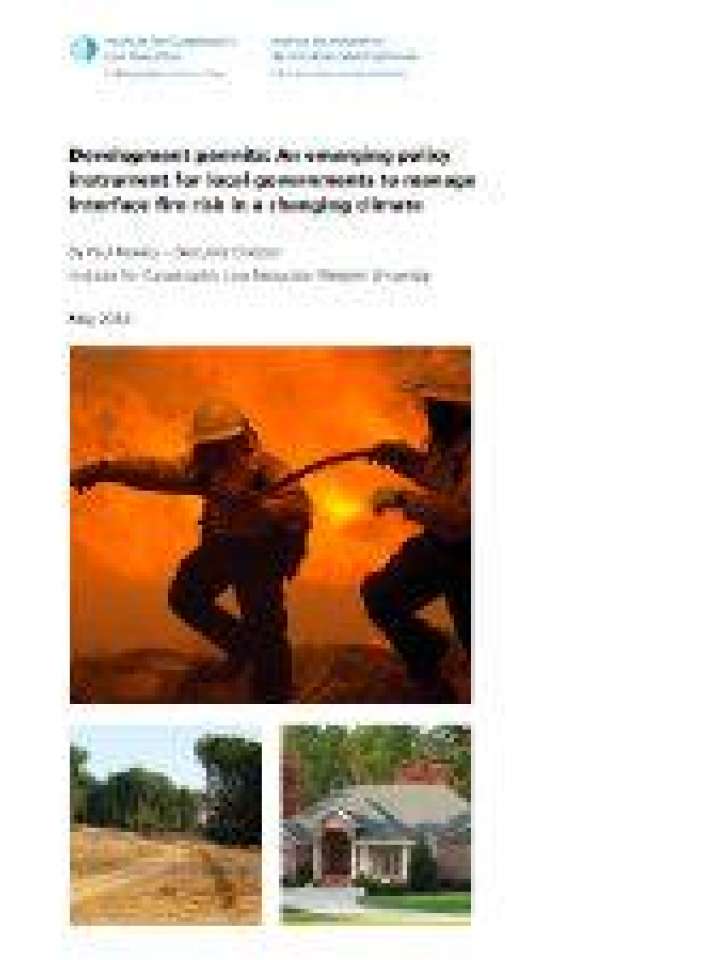Development permits: an emerging policy instrument for local governments to manage interface fire risk in a changing climate
This report explores the emerging role of local government planning officials and the use of established tools such as development permits to address the risk of damage from wildfire. The report highlights three case studies in British Columbia and Alberta, Canada.
The development permit system is a planning tool that local governments can use to manage development, protect the environment and address health and safety issues. The system can be used to combine management of zoning, site planning and minor variants into a single process. Some communities have begun to usedevelopment permits to control the extent, nature and location of new residential development in the wildland-urban interface, establishing a new policy instrument to address the risk of loss from wildland fire and ensure that our communities are safe places to live, work and play. These tools may spread in the years ahead to be used by local governments across the country, recognizing the important contribution that local planning decisions can make within a comprehensive wildland-urban interface fire management strategy.
Explore further

